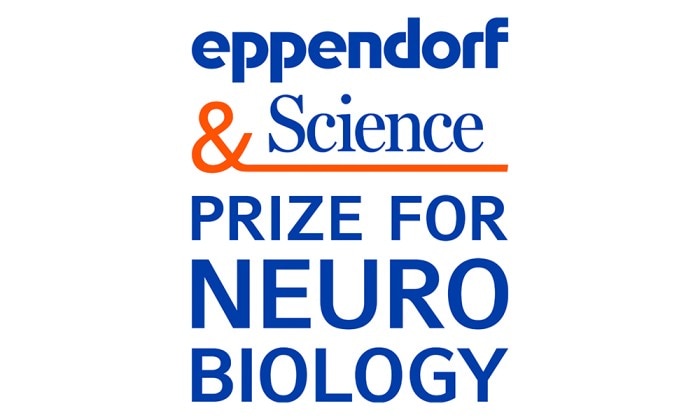メニュー
JP | JPY
-
-
-
- Challenges and Chances: A Review of the 1st Stem Cell Community Day
- Summertime, and the Livin’ Is Easy…
- Follow-on-Biologics – More than Simple Generics
- Bacteria Versus Body Cells: A 1:1 Tie
- Behind the Crime Scene: How Biological Traces Can Help to Convict Offenders
- Every 3 Seconds Someone in the World Is Affected by Alzheimer's
- HIV – It’s Still Not Under Control…
- How Many Will Be Convicted This Time?
- Malaria – the Battle is Not Lost
- Physicians on Standby: The Annual Flu Season Can Be Serious
- At the Forefront in Fighting Cancer
- Molecular Motors: Think Small and yet Smaller Again…
- Liquid Biopsy: Novel Methods May Ease Cancer Detection and Therapy
- They Are Invisible, Sneaky and Disgusting – But Today It’s Their Special Day!
- How Many Cells Are in Your Body? Probably More Than You Think!
- What You Need to Know about Antibiotic Resistance – Findings, Facts and Good Intentions
- Why Do Old Men Have Big Ears?
- The Condemned Live Longer: A Potential Paradigm Shift in Genetics
- From Research to Commerce
- Chronobiology – How the Cold Seasons Influence Our Biorhythms
- Taskforce Microbots: Targeted Treatment from Inside the Body
- Eyes on Cancer Therapy
-
-
-
-
-
- Challenges and Chances: A Review of the 1st Stem Cell Community Day
- Summertime, and the Livin’ Is Easy…
- Follow-on-Biologics – More than Simple Generics
- Bacteria Versus Body Cells: A 1:1 Tie
- Behind the Crime Scene: How Biological Traces Can Help to Convict Offenders
- Every 3 Seconds Someone in the World Is Affected by Alzheimer's
- HIV – It’s Still Not Under Control…
- How Many Will Be Convicted This Time?
- Malaria – the Battle is Not Lost
- Physicians on Standby: The Annual Flu Season Can Be Serious
- At the Forefront in Fighting Cancer
- Molecular Motors: Think Small and yet Smaller Again…
- Liquid Biopsy: Novel Methods May Ease Cancer Detection and Therapy
- They Are Invisible, Sneaky and Disgusting – But Today It’s Their Special Day!
- How Many Cells Are in Your Body? Probably More Than You Think!
- What You Need to Know about Antibiotic Resistance – Findings, Facts and Good Intentions
- Why Do Old Men Have Big Ears?
- The Condemned Live Longer: A Potential Paradigm Shift in Genetics
- From Research to Commerce
- Chronobiology – How the Cold Seasons Influence Our Biorhythms
- Taskforce Microbots: Targeted Treatment from Inside the Body
- Eyes on Cancer Therapy
-
-
JP | JPY

Eppendorf & Science Prize for Neurobiology 2023 goes to Marissa Scavuzzo, USA
news
- 賞
- 企業ニュース
This year’s Eppendorf & Science Prize for Neurobiology goes to the American scientist Marissa Scavuzzo, Ph.D., Postdoctoral Fellow at Case Western Reserve University School of Medicine, Cleveland, USA.
Marissa Scavuzzo has won the $25,000 Eppendorf & Science Prize for Neurobiology 2023 for her work on the functional diversity of glial cells in the enteric nervous system of the gut.
“The ability to digest food, absorb nutrients, and process waste is required for life,” says Scavuzzo. “Many of these essential tasks are controlled by an independent nervous system embedded within every layer of the gut, the enteric nervous system.”
Scavuzzo studies this network of nervous system cells inside the gastrointestinal tract, often referred to as “the second brain.” She uses stem cells and tissues to create lab-grown models of the mouse and human intestines. By combining these organs-in-a-dish with animal models, she works to map glial cells’ diversity in the gut. Glial cells, the support cells of the brain, aid in regulating and protecting neurons. However, their role in the gut is not well understood. Scavuzzo aims to understand how enteric glia function in a normal gut and how they react to changes in environment, genetic makeup, or diet. Millions of individuals who suffer from gastrointestinal diseases could be impacted by this work and its potential for creating new and effective therapies.
“The ability to digest food, absorb nutrients, and process waste is required for life,” says Scavuzzo. “Many of these essential tasks are controlled by an independent nervous system embedded within every layer of the gut, the enteric nervous system.”
Scavuzzo studies this network of nervous system cells inside the gastrointestinal tract, often referred to as “the second brain.” She uses stem cells and tissues to create lab-grown models of the mouse and human intestines. By combining these organs-in-a-dish with animal models, she works to map glial cells’ diversity in the gut. Glial cells, the support cells of the brain, aid in regulating and protecting neurons. However, their role in the gut is not well understood. Scavuzzo aims to understand how enteric glia function in a normal gut and how they react to changes in environment, genetic makeup, or diet. Millions of individuals who suffer from gastrointestinal diseases could be impacted by this work and its potential for creating new and effective therapies.
もっと読む
表示を減らす
Virtual Prize Ceremony
The Eppendorf & Science Prize for Neurobiology is being awarded on Sunday, November 12 at the Science/AAAS Headquarters in Washington DC. All are invited to participate virtually in the Prize Ceremony. You can watch the 60-minute event live via:
https://event.eppendorf.com/prizeceremony (6:45 pm EST, resp. November 13 at 00:45 am CET, 10:45 am AEDT)
Two finalists are also recognized:
Michael A. Skinnider, M.D., Ph.D., Assistant Professor at Princeton University, has developed tools to accelerate the mapping of neural circuits.
Mattia Aime, Ph.D., Postdoctoral Researcher at the University of Bern, Switzerland, has identified a neuronal mechanism that triages positive from negative emotions during REM sleep.
For more about the Prize, go to www.eppendorf.com/prize
https://event.eppendorf.com/prizeceremony (6:45 pm EST, resp. November 13 at 00:45 am CET, 10:45 am AEDT)
Two finalists are also recognized:
Michael A. Skinnider, M.D., Ph.D., Assistant Professor at Princeton University, has developed tools to accelerate the mapping of neural circuits.Mattia Aime, Ph.D., Postdoctoral Researcher at the University of Bern, Switzerland, has identified a neuronal mechanism that triages positive from negative emotions during REM sleep.
For more about the Prize, go to www.eppendorf.com/prize
もっと読む
表示を減らす


